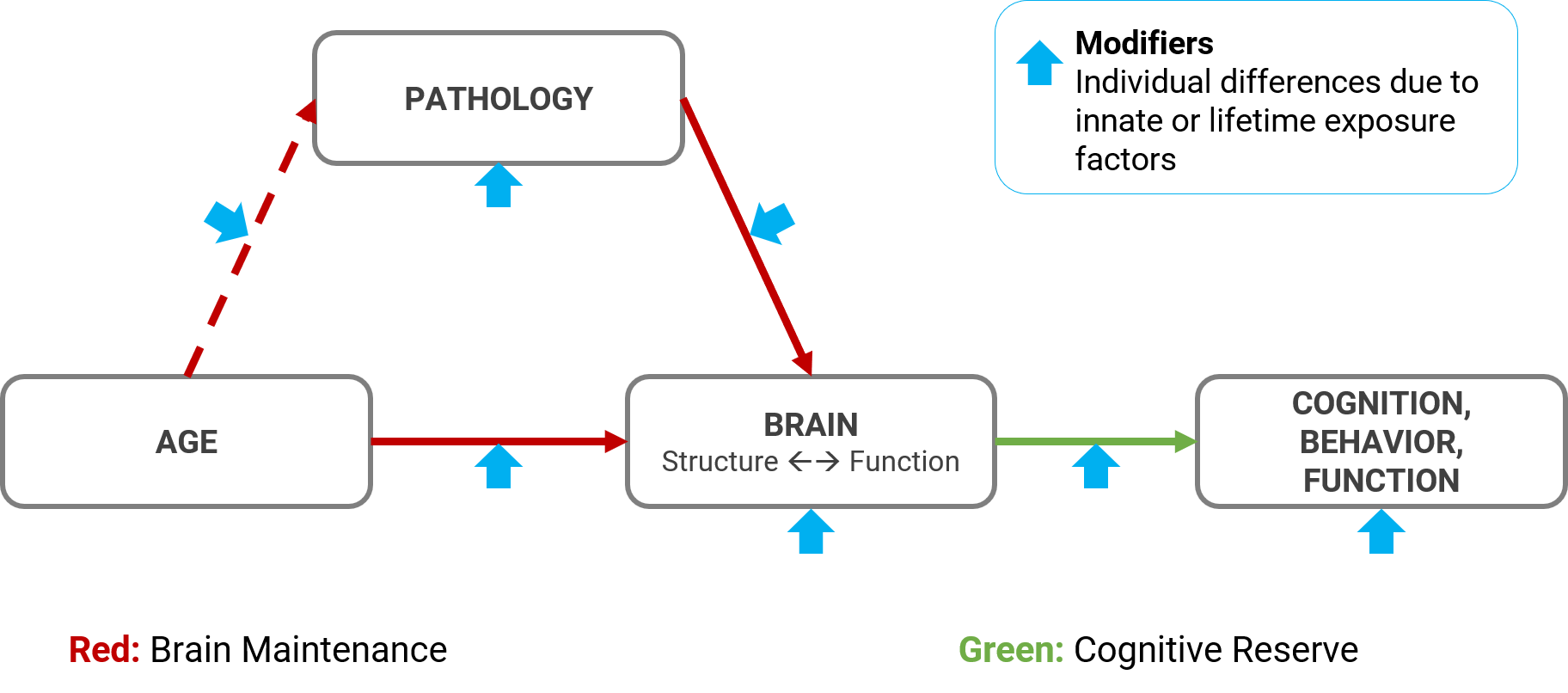Consensus Definitions
The Executive Committee of the Collaboratory proposes definitions for the concepts of cognitive reserve and brain maintenance. We spent a great deal of time considering the input received from many of you and tried to develop definitions that were not only guided by the literature, but that could facilitate the integration of human and animal research in this arena. The included diagram is designed with a similar goal in mind. While we recognize that these definitions may evolve over time, we think that it is important to have working definitions of at least two of the central concepts under discussion, in order to provide a framework for the pilot projects and to promote future discussion among the larger research community.
Cognitive reserve is a property of the brain that allows for sustained cognitive performance in the face of age-related changes and brain insult or disease.
- Property of the brain refers to multiple potential mechanisms including molecular, cellular and network levels
- Sustained cognitive performance ideally refers to trajectories measured longitudinally, although cross sectional data can also be illuminating
- These mechanisms can be characterized via biological or cognitive approaches
- Another potential mechanism through which reserve operates is reorganization of function, sometimes referred to as compensation.
Brain maintenance refers to the relative absence of change in neural resources over time as a determinant of preserved cognition in older age.
Brain maintenance and cognitive reserve are complementary concepts. One refers to relative preservation of the brain while the other refers to sustaining cognition in the face brain changes.
Both brain maintenance and cognitive reserve can be influenced by multiple genetic and environmental factors, operating at various points across the lifespan.

